IAB Europe joins other online advertising industry stakeholders in creating draft Code of Practice on Disinformation
Brussels, 17 July 2018 – The draft Code of Practice on Disinformation, drawn up by IAB Europe alongside other stakeholders from online advertising and platforms sectors[1], was presented today at the meeting of the Multi-stakeholder Forum on Disinformation. European Commissioner Mariya Gabriel (Digital Economy and Society) participated in the meeting and welcomed the inclusive and constructive process that led to the first iteration of the Code.
The draft Code was developed by a Working Group designated by DG CONNECT in the context of the Multi-stakeholder Forum on Disinformation (‘Forum’), of which the Working Group is part. IAB Europe is a member of the Working Group.
The draft Code will now be reviewed by the advisory group of stakeholders within the Forum, the Sounding Board, whose feedback is expected during September[2].
The Forum was formed upon the recommendation deriving from the Commission’s Communication on tackling online disinformation published in April 2018, building on the work of the High-Level Expert Group on Fake News and Disinformation convened by DG CONNECT in January 2018.
“The legitimate online ecosystem provides an infrastructure that can be misused by bad actors to deceive and confuse citizens, making it more difficult for them to make fact-based judgments, and ultimately undermining our democracies,” said Townsend Feehan, IAB Europe CEO. “The same ecosystem is also a powerful platform for the democratic dissemination of information and views. All stakeholders need to work together to reduce the opportunities for misuse. We are pleased to have had the opportunity to participate in this exercise under the leadership of DG CONNECT.”
Though all manifestations of online disinformation do not leverage, or relate to, advertising, it is important to acknowledge the real-life scenarios where digital advertising may facilitate the creation and propagation of disinformation, for example, by inadvertently enabling the placing of legitimate advertising on websites enabling disinformation. “IAB Europe members are committed to continuing to invest in brand safety tools that reduce or eliminate such ad misplacement, because it is the right thing to do and is in the best interest of the brands involved”, said Feehan.
IAB Europe encourages continued EU-level investment in research to better understand the scope and nature of online disinformation, and in consumer education, notably in the area of media literacy, to increase people’s ability critically to assess information they receive.
We are looking forward to hearing the Sounding Board’s views on the draft Code, and to continuing to collaborate with others across the ecosystem on this major challenge.
Contact
Greg Mroczkowski, Public Policy Manager at IAB Europe (mroczkowski@iabeurope.eu, +32 4830 58 203)
About IAB Europe
IAB Europe is the leading European-level industry association for the digital media and advertising industry. Its mission is to promote the development of this innovative sector and ensure its sustainability by shaping the regulatory environment, demonstrating the value digital advertising brings to Europe’s economy, to consumers and to the market, and developing and facilitating the uptake of harmonised business practices that take account of changing user expectations and enable digital brand advertising to scale in Europe.
[1] Working Group comprises of the following members: Google, Facebook, Twitter, Mozilla, EDIMA, EASA, WFA, AIM, IAB Europe, EACA.
[2] Sounding Board comprises of the following members: EBU, EFJ, NME, ACT, EPC, AER, EMMA, ENPA, BEUC, IFCN, Poynter, Bilyana Petkova (Maastricht University), Oreste Pollicino (Bocconi University), Giovanni Riotta (LUISS/Princeton University), Ravi Kiran Vatrapu (Copenhagen Business School).





